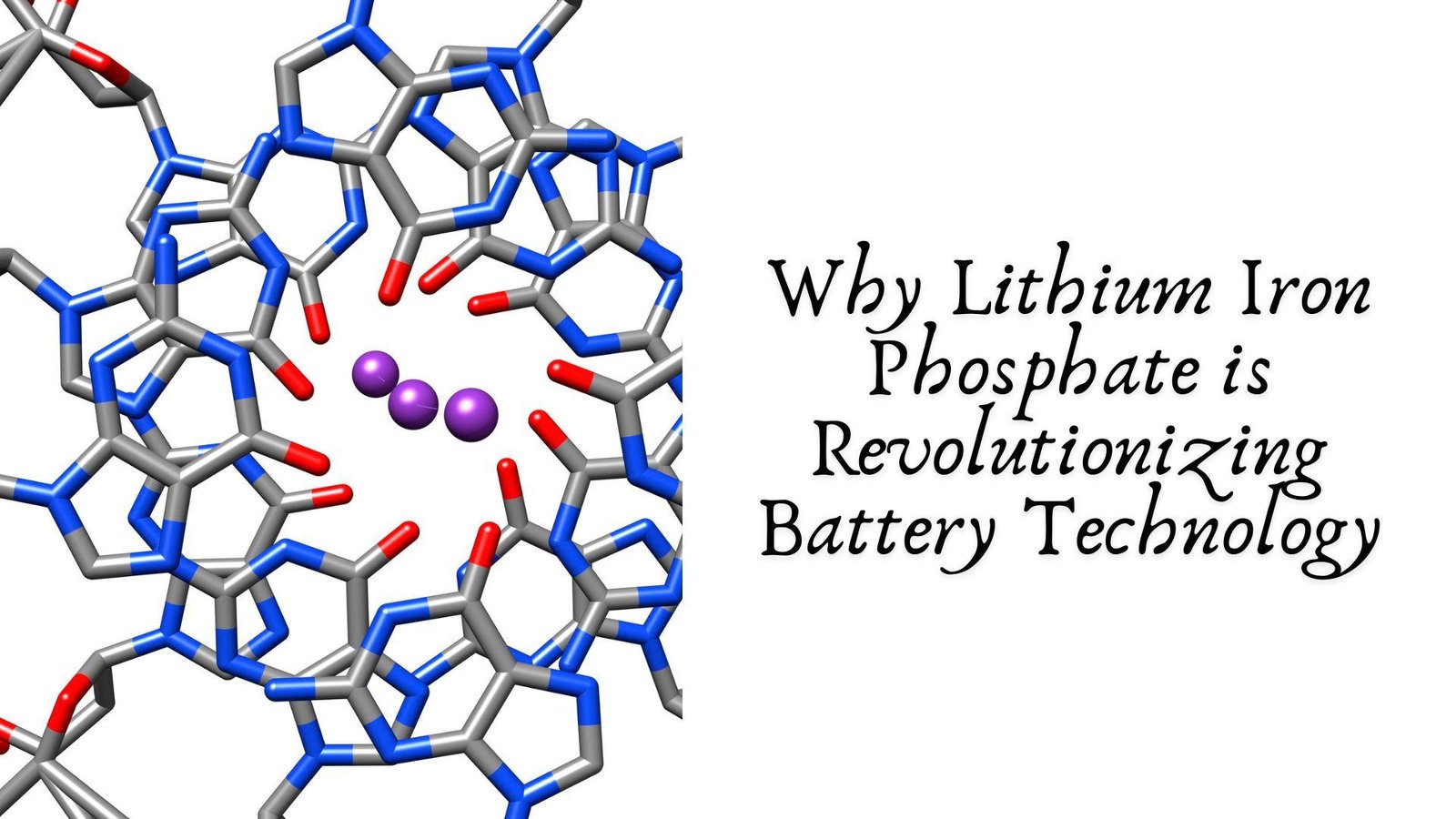In the rapidly evolving landscape of battery technology, Lithium Iron Phosphate (LiFePO4 or LFP) has emerged as a game-changing solution. This advanced battery chemistry is redefining energy storage across multiple industries, from electric vehicles (EVs) to renewable energy systems and consumer electronics. As the demand for safer, longer-lasting, and more efficient batteries grows, Lithium Iron Phosphate stands out as a revolutionary innovation. This article explores the key benefits, applications, and future impact of LiFePO4 technology.
Understanding Lithium Iron Phosphate (LiFePO4)
Lithium Iron Phosphate batteries belong to the lithium-ion battery family but have unique chemical properties that set them apart. LiFePO4 is composed of lithium, iron, phosphate, and oxygen, forming a stable olivine structure. This composition grants the battery exceptional thermal stability, longevity, and safety compared to traditional lithium-ion alternatives like lithium cobalt oxide (LiCoO2) or lithium manganese oxide (LiMn2O4).
Key Advantages of LiFePO4 Batteries
Enhanced Safety and Thermal Stability
One of the most significant advantages of Lithium Iron Phosphate batteries is their superior safety profile. Unlike other lithium-ion batteries, LiFePO4 is highly resistant to thermal runaway, which reduces the risk of overheating, fire, or explosion. This makes them an ideal choice for applications where safety is paramount, such as electric vehicles, medical devices, and energy storage systems.
Longer Cycle Life
LiFePO4 batteries boast an impressive lifespan, often exceeding 2,000 to 5,000 charge cycles, compared to 500-1,000 cycles for conventional lithium-ion batteries. This longevity translates into reduced replacement costs and enhanced sustainability, making them a cost-effective choice for businesses and consumers alike.
Faster Charging and High Discharge Rates
The ability to charge quickly is crucial in applications like EVs and renewable energy storage. LiFePO4 batteries support rapid charging without significantly degrading their lifespan. Additionally, they can deliver high discharge currents efficiently, ensuring consistent performance under heavy loads.
Eco-Friendly and Non-Toxic Composition
Unlike batteries that rely on cobalt and nickel, which have significant environmental and ethical concerns, LiFePO4 batteries are free from toxic heavy metals. This makes them more environmentally friendly, easier to recycle, and less dependent on conflict minerals.
Lightweight and High Energy Efficiency
While LiFePO4 batteries have slightly lower energy density compared to lithium cobalt oxide, they offer high efficiency and lower weight compared to lead-acid alternatives. This makes them suitable for applications where weight reduction is crucial, such as electric vehicles and portable power solutions.
Applications of LiFePO4 Batteries
Electric Vehicles (EVs) and Transportation
The EV industry is increasingly adopting LiFePO4 batteries due to their long lifespan, safety, and efficiency. Companies like Tesla, BYD, and CATL are incorporating LFP batteries in their latest EV models to enhance safety and affordability.
Renewable Energy Storage
Solar and wind energy systems require reliable storage solutions to balance energy supply and demand. LiFePO4 batteries are widely used in residential and commercial energy storage systems due to their long cycle life and deep discharge capability.
Uninterruptible Power Supplies (UPS) and Backup Systems
LiFePO4 batteries are replacing traditional lead-acid batteries in UPS systems, data centers, and critical infrastructure backup solutions. Their ability to provide stable power for extended periods makes them an ideal choice.
Marine and RV Applications
The marine and recreational vehicle (RV) industries benefit from LiFePO4's lightweight nature and durability. These batteries offer a reliable, maintenance-free power source for long-term use in remote locations.
Industrial and Consumer Electronics
From medical equipment to portable power stations, LiFePO4 batteries are making their way into various consumer and industrial applications. Their robust design ensures reliability in extreme conditions.
Challenges and Future Prospects
Despite their advantages, LiFePO4 batteries have some limitations, such as lower energy density compared to other lithium-ion chemistries. However, ongoing research is focused on improving their energy capacity and performance. The integration of nanotechnology and solid-state advancements is expected to further enhance LiFePO4 battery efficiency.
With major manufacturers investing in LFP technology and governments pushing for safer, sustainable energy storage solutions, Lithium Iron Phosphate is poised to play a crucial role in the future of battery technology. As advancements continue, we can expect even greater adoption in EVs, grid storage, and beyond.
Conclusion
Lithium Iron Phosphate is revolutionizing battery technology by offering a safer, longer-lasting, and environmentally friendly alternative to traditional lithium-ion batteries. Its impact is being felt across multiple industries, from electric vehicles to renewable energy storage. As the world transitions toward sustainable energy solutions, LiFePO4 technology stands at the forefront, driving innovation and reshaping the future of power storage.
